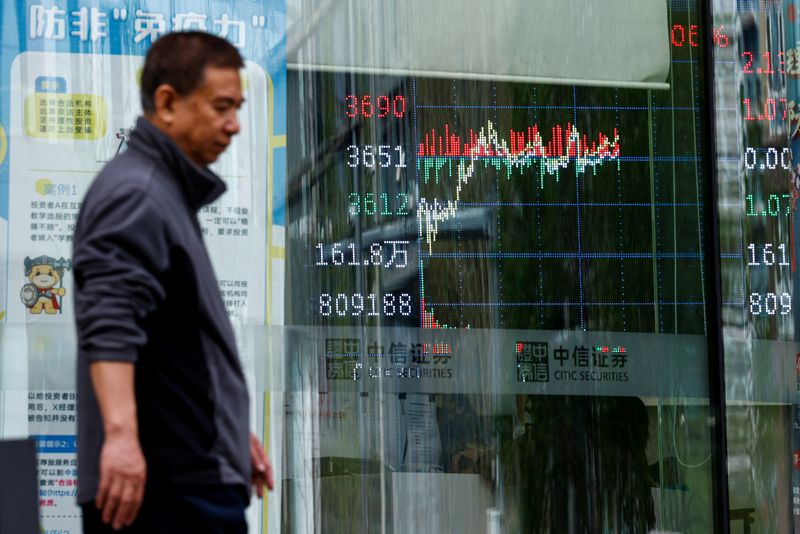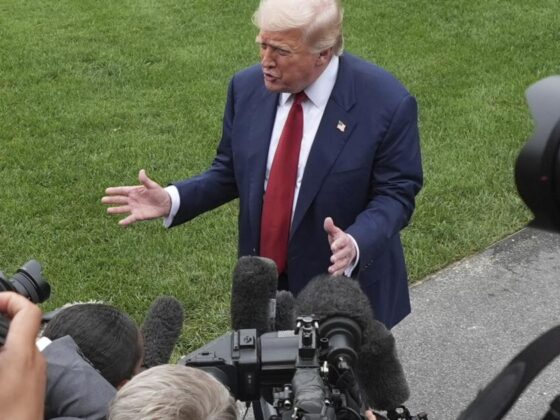By Sinéad Carew and Alun John
NEW YORK/LONDON (Reuters) -The U.S. dollar index rose on Thursday while MSCI's global equities gauge fell as stronger-than-expected megacap earnings reports were balanced against signs of rising inflation and investor anxiousness ahead of President Donald Trump's deadline for trade agreements.
Trump gave Mexico a 90-day reprieve from higher tariffs to negotiate a broader trade deal but was expected to issue higher final duty rates for most other countries as the clock wound down on the Friday deadline.
Earlier in the day, an economic data release showed U.S. inflation increased in June as tariffs on imports started raising the cost of some goods, supporting economists' expectations that price pressures would pick up in the second half of the year.
Thursday's data also showed fewer-than-expected Americans applied for unemployment benefits, while second-quarter U.S. labor costs increased slightly more than expected on a pick-up in wage growth.
The Federal Reserve kept rates steady on Wednesday, and Chair Jerome Powell said the central bank needed to wait for more data before deciding whether to adjust rates in September, sending equities lower on the day and drawing further criticism from Trump.
Indexes saw some support earlier on Thursday from better-than-expected results from Microsoft and Meta Platforms but by the end of the day, gains had evaporated.
With the economic data appearing to support the Fed's more hawkish stance and an anxious wait for Friday's payroll report along with Trump's tariff deadline, investors had an awful lot to handle this week, said Kevin Gordon, senior investment strategist at Schwab.
“This is one of those weeks where it's almost too much information to digest, so the market is ignoring it all and staying in a tight range,” Gordon said.
However, he noted megacap strength was countering weakness elsewhere in the market including in small-cap companies, which have less latitude to cope with higher prices.
“You really only have communications services and parts of technology that are holding you up today. Breadth is generally pretty weak,” the strategist said.
The Russell 2000 small cap index ended down 0.93% while the S&P 600 small cap index fell 1.17%.
On Wall Street, the Dow Jones Industrial Average fell 330.30 points, or 0.74%, to 44,130.98 and the S&P 500 was down 23.51 points, or 0.37%, to 6,339.39 with only two of its 11 major industry sectors showing gains for the day.
The Nasdaq Composite fell 7.23 points, or 0.03%, to 21,122.45.













